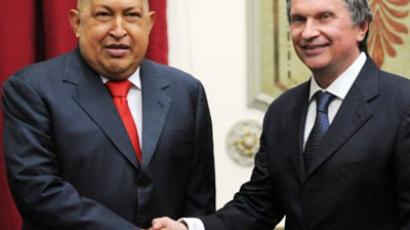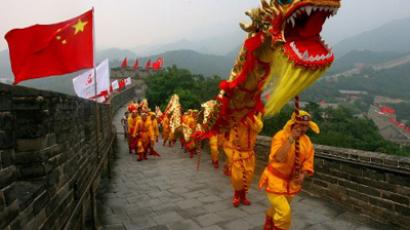Hugo Chavez: Warming Americans’ hearts
Hugo Chavez is one of leaders Washington most likes to paint as an enemy of America, but contrary to this logic, there are thousands in the US who have warm feelings for the flamboyant Venezuelan leader.
A winter’s morning in South Bronx, New York City. Outdoors the temperature is near freezing. Indoors, 77-year-old Alice Maiotis is bundled up, brewing a pot of coffee and raising the heat enough to take the chill out of the air. The retired grandmother of seven lives alone on a fixed income and each winter, as federal programs continue to be slashed, the struggle to afford warm comfort gets harder. “I go around screaming and yelling,” the elderly lady says. “All they do is raise, raise, raise, raise and it is the same dollar you are getting, so how far can you push it? A hundred and fifty gallons of oil is right now about close to $600.”However, Venezuela has been stepping in to make Alice’s life a bit easier by delivering 100 gallons of free heating oil each winter. She is a four-year beneficiary of the Citgo-Venezuela heating oil program, which provides free heating oil to 500,000 poor Americans living in low-income neighborhoods and shelters throughout the country. President Hugo Chavez, often demonized by Washington, helped launch the program in 2005, following hurricanes Katrina and Rita. “All I know is that he was kind. He was kind to the people of the United States,” Alice says. “I am sure he rules differently, like Obama rules differently, and who are we to tell these people how they should live? Are they invading our country? They are not. They are being generous to give us what comes out of their earth, at no charge, so could you really have ill feelings against them? I am thankful for it. I really am.”In an interview with a Venezuelan newspaper, America’s leader fell short of expressing similar sentiments of gratitude. In an interview with El Universal, President Barack Obama accused the Chavez government of restricting human rights and taking threatening steps against democratic values. The Venezuelan president did not mince words while recently responding to his us counterpart. "You know what, Obama? I feel sorry for you,” Chavez said. “Just ask the black communities of your country what you mean to them. You are the greatest disappointment of recent years. Go ask the poor people of your country. You are a great disappointment to them.”Chavez’s words echo the skepticism Alice Maiotis expressed to RT over the US politics. “It is time that we stop minding everyone else’s business and took business here,” she said. “We have children graduating from college with 80-, 90-, 100,000-dollar debts that they have to pay back. It is ruining them and they cannot get a job.”And getting a job is a struggle that is getting that much harder in the “land of opportunity”.














